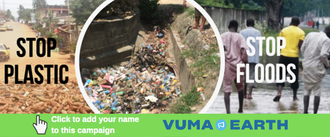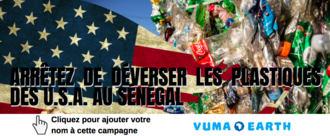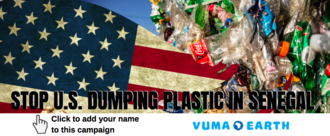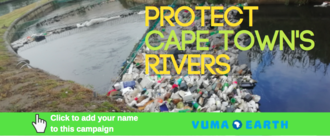-
Ne Touche pas à nos terres ancestrales - U wesu Pehalal !!!!!!Présentation Il se trouve que le gouvernement camerounais, avec l'aide de certains lobbies tapis dans l´ombre voudrait priver les populations de villes de Yabassi, Yingui, une partie de Ngambe et une partie de Ndikiniméki d'une superficie de près de 85 000 ha de forêt au fallacieux motif que ces hectares ne sont ni occupés, ni exploités. Or, pour qui connait l´histoire coloniale du Cameroun, l´on devrait se rappeler qu´à la faveur d´un arrêté préfectoral de 1963, ces populations qui y vivaient paisiblement avaient été déguerpies manu militari par la jeune armée camerounaise, fortement soutenue par l´armée coloniale française, qui faisait face á une féroce rébellion réfugiée dans cette forêt. Des villages avaient été totalement vidés de toute vie humaine, laissant derrière eux églises, écoles, cimetières, plantations, habitations, cheptel (chèvres, moutons, porcs, volaille) et animaux de compagnie (chiens, chats). Aujourd'hui encore subsistent dans cette forêt de nombreux vestiges qui témoignent du vécu et du passé de ces populations à cet endroit. Elles furent alors contraintes de s´exiler vers d´autres villes camerounaises, notamment dans le département du Mungo ( Loum, Penja, Mombo), celui du wouri ( Douala et ses environs), de la Sanaga-maritime(Edéa, Dizangue, Sombengue, Pouma), du Nkam (Carrefour Bonepoupa, Kopongo, PK 12 à 30). De quoi s´agit-il? Alors que la nouvelle génération issue de ces populations autrefois déportées amorce depuis quelques années son retour sur ses terres ancestrales à travers un programme de repeuplement de leurs terres( Construction des habitations, création des plantations, ouverture des écoles, points d´eau) voici que le gouvernement du Cameroun voudrait les priver de leur patrimoine foncier ancestral, en évitant de discuter directement avec les chefs de villages et les propriétaires des terres, mais plutôt avec des suppôts à sa solde. Outre le fait que les populations voudraient défendre leurs intérêts fonciers ancestraux, il se trouve que cette vaste superficie regorge d´immenses richesses en termes de flore et faune, des espèces animales protégées et de plusieurs essences (arbres). Ce qui fait la convoitise de certains fonctionnaires zélés qui voudraient l´offrir sous cape à un forestier aux fins de l´exploiter sous forme d' UFA (unité forestière aménagée) sans que les populations concernées aient leur mot à dire. Des réunions présidées par le préfet du département du Nkam se limitent au seul monologue de ce dernier qui ne laisse aucune place á la contradiction; des réunions dont le mode de convocation, de même que le choix des personnes devant y prendre part se font à la tête du client le moins gênant dans l´affaire. Que dire alors de la superficie et des villages concernés : Tabou. Que faut-il faire? Il s´agit de soutenir les pauvres populations dans la défense de leurs droits ancestraux en invitant le gouvernement camerounais, notamment les fonctionnaires zélés à surseoir à leur sale besogne. Non pas que ces populations sont contre un quelconque projet de développement, mais de grâce elles souhaitent maîtriser les tenants et les aboutissants du projet. Elles souhaitent que les autorités administratives leur octroient des titres fonciers sur ce territoire, et que la biodiversité de ce territoire soit protégée. C´est leur biotope. Aussi en appellent-elles à toute personne, institution ou action qui pourrait les accompagner dans ce difficile combat pour la défense de leur héritage ancestral. Terre des Aïeux. A wesu Pehalal !2,358 of 3,000 SignaturesCreated by Marie Grâce Ngo Mbog
-
CAMEROON: STOP PLASTIC, STOP FLOODINGWe seem to be failing the war against plastic in our country. We have long understood the negative impact plastic has had on the people of Cameroon, and have even taken steps to curb the problem by introducing into law a ban on the importation, production or commercialization of non-biodegradable plastic bags on April 1, 2014. However, the law is not enforced and instead, we try to accommodate single-use plastic for the short term gains, by trying to ramp up recycling schemes which are not working. What is left is an erosion of our public infrastructure, where drainage systems become blocked, causing widespread flooding and putting the lives of citizens at risk. In fact, the situation has become even more dire - constant urban floods in Douala and the recent deaths of 42 Bafoussam residents after their houses were swept away in a landslide is testament of that. And we need need to respond swiftly to this environmental emergency. All in takes is the simple enforcement of a law that already exists. In Kenya, for instance, where that have taken massive steps to enforce their ban of the plastic ban, there has been a massive, almost immediate, improvement on the state of the environment. They too faced a lot of resistance from the public, but they have learned to adapt. We urge you to be as bold as the Kenyan government, and not to cave to pressure from those who have no concern for the citizens who are at risk - the most vulnerable of our people.5,341 of 6,000 SignaturesCreated by Mbamba Arsène
-
Non aux usines « MOUKA » farine animalesLa capitale économique de la Mauritanie est entrain d’agoniser avec toute sa population. Les côtes Mauritaniennes jadis les plus poissonneuses du monde et dont tout un pays désertique en dépend sont fortement menacées par les usines de farine animales . Seule une poignée d’hommes d’affaire qui se compte sur le bout des doigts de la main récolte leur bénéfice. Cette activité est avare en main d’œuvre.31 of 100 SignaturesCreated by Sidi Sidahmed
-
SAVE SOUTH AFRICA'S WILD COAST FROM OIL DRILLINGKwaZulu-Natal is renowned for its famous and beautiful beaches. However, healthy oceans are critically important to marine life and to coastal communities whose economies rely on tourism, fishing and recreational activities. Last year, mineral resources minister Gwede Mantashe announced that SA will relax a moratorium on gas and oil exploration licences, implemented earlier in 2018, to allow exploration and production applications already in the system to be granted. Opening up new offshore areas to drilling, risks permanent damage to our oceans and beaches. We've already witnessed the harmful effect of oil on the ocean in July - after fuel tank valves from the MV Chrysanthi S were not properly closed, which lead to an overspill in Port Elizabeth, affecting 90 African penguins! Read more - - https://southcoastherald.co.za/300531/opposing-oil-gas-exploration-awareness-workshop-held-sheppie-july-10/ - https://www.businesslive.co.za/bd/national/2018-12-02-activists-vow-to-prevent-exploration-for-oil-and-gas-off-kwazulu-natal-coast/ - https://www.iol.co.za/capetimes/news/seabirds-rescued-after-oil-spill-released-back-into-wild-326132825,915 of 6,000 SignaturesCreated by Gillian le Roux
-
Stop the coal mine in Komatipoort!Arising from Manzolwandle Investments’ application to mine coal in an area of approximately 18 000 hectares close to Komatipoort and the Kruger National Park, the agricultural network Saai – representative of family farmers – joined as interested party to oppose this development. The target area mainly comprises irrigation agriculture in export industries, as well as high-intensity farms that have a large number of workers in service. Acid rain, coal dust, hundreds of trucks destroying roads, an increase in cattle theft, air and water pollution and noise are but single disadvantages and side effects that mining activities would cause for nearby agricultural production. ABOUT SAAI - The Southern African Agri Initiative (SAAI) is an agricultural interest network for farmers by farmers, which is committed to the protection and promotion of the rights, values, ideals and needs of family farmers in the primary produce sector. website - https://www.saai.org/5,866 of 6,000 SignaturesCreated by Francois Rossouw

-
Arrêtez de déverser les plastiques des U.S.A. au SénégalIl y a seulement un an depuis que les États-Unis ont commencé à exporter leurs déchets plastiques au Sénégal, et ils ont déjà envoyé plus d’un million de kilogrammes de déchets. Depuis l’interdiction de la Chine, les États-Unis se sont mis à déverser leurs déchets dans plusieurs pays en développement dans le monde. Par contre, nous ne pouvons les autoriser de faire de l’Afrique leur décharge. Nous devons déjà gérer notre propre crise plastique – qui expose les gens ordinaires à un risque élevé sur leur santé. Sur la totalité des plastiques qui existe, seulement 9 pourcents sont recyclés, c’est pour cela qu’il est probable que les déchets des États-Unis, qui finissent au Sénégal, y demeure. Ne vous laissez pas intimider en mettant la santé du peuple sénégalais en danger. Protégeons notre avenir en refusant d’accueillir leur déchet. La dignité de notre peuple est en danger. Nous avons besoin d’un leadership fort pour nous protéger. EN SAVOIR PLUS - https://www.theguardian.com/us-news/2019/jun/17/recycled-plastic-america-global-crisis?CMP=share_btn_tw https://www.independent.co.uk/arts-entertainment/photography/senegal-west-africa-plastic-waste-crisis-pollution-dakar-a8867451.html https://www.theguardian.com/us-news/2019/jun/17/recycled-plastic-america-global-crisis4,999 of 5,000 SignaturesCreated by Elhadj Mamadou Kaly Sow
-
Stop U.S. Dumping Plastic in SenegalIt has only been a year since the United States began exporting their plastic waste to Senegal, and already it has sent over 1 million kilograms of waste. Ever since China’s ban, the United States has started dumping their waste in several developing nations around the world. But, we cannot allow it to make Africa it’s dumping ground. We already have our own plastic crisis to deal with - which poses a major health risk to ordinary people. Of the plastic that exists, only 9 percent has ever been recycled, so the United States' waste ending up in Senegal is likely to stay. Do not be bullied into putting the health of the Senegalese people at risk. Protect our future by refusing to accept their waste. The dignity of our people is at risk. We need strong leadership to protect us. READ MORE - https://www.theguardian.com/us-news/2019/jun/17/recycled-plastic-america-global-crisis?CMP=share_btn_tw https://www.independent.co.uk/arts-entertainment/photography/senegal-west-africa-plastic-waste-crisis-pollution-dakar-a8867451.html https://www.theguardian.com/us-news/2019/jun/17/recycled-plastic-america-global-crisis7,361 of 8,000 SignaturesCreated by Elhadj Mamadou Kaly Sow
-
Stop Illegal Abalone TradeShellfish abalone, known locally as “perlie” or perlemoen, is in high demand, particularly from the Far East. Abalone is heavily restricted, but illegal harvesting by organised criminal networks has caused stocks to plummet, dramatically impacting the legal abalone farming industry. Abalone poaching has cost the country 96 million individual abalones worth R10 billion between 2000 to 2016 - and as a result, it is one of the inshore fisheries that faces collapse in South Africa. Abalone poaching is highly illegal, carrying severe penalties. However, the level of desperation in Western Cape fishing communities is high. A lack of alternatives, compounded by the lure of easy money, drives many in the community to participate in illegal poaching activities. Fishing communities are becoming increasingly poor and more vulnerable - and the WOMEN who live in these communities remain at the bottom of the food chain. The women’s economic dependence and vulnerability means they are regularly exploited by poachers and coerced into engaging in criminal activities, often with disastrous consequences. What was once a thriving ecosystem of subsistence fishing has become a hotbed of criminal activity involving top government officials, who continue to benefit off regulations which make it imposable for small-scale fishermen to partake in trade of abalone legitimately. Many women in the community have husbands, sons, partners and brothers who are engaged in illegal abalone poaching. Traditional engendered roles consequently entrap these women in supporting poaching activities by preparing food, cleaning wetsuits, storing catch bags in their freezers and permitting boats to park on their properties. They are vulnerable to gender violence, as in any setting immersed in criminality. For more information - https://www.groundup.org.za/article/want-curb-abalone-poaching-treat-cause/ https://theconversation.com/first-steps-to-tackling-south-africas-abalone-poaching-106957 https://www.news24.com/SouthAfrica/Local/Peoples-Post/fishing-communities-becoming-more-poor-20181119 https://ewn.co.za/2019/03/12/national-interventions-having-little-impact-on-abalone-poaching-report https://www.dailymaverick.co.za/article/2018-12-14-former-poacher-reveals-uncomfortable-truths-about-stealing-from-nature-to-survive/4,365 of 5,000 SignaturesCreated by Karl Visser

-
Ban The Butt in South AfricaCigarette butts are the most commonly discarded type of litter globally and are the most frequent item of litter picked up on beaches and other water bodies worldwide. In South Africa cigarette butts continue to be the third most common item of litter found on beaches during clean-ups. Around 23.49 billion cigarettes are consumed in South Africa each year (NIDS, 2015), with global evidence showing that the majority of these are not thrown away in a waste bin (www.cigwaste.org). Of particular environmental concern is the fact that the filters used in cigarettes are not bio-degradable because they are made out of cellulose acetate - a form of plastic. They can take months or even years to break down into smaller pieces of plastic but will not biodegrade. The tobacco remnant is biodegradable because it’s made from plant material, but is still poisonous to humans, animals, aquatic organisms and the environment (Tobacco and its environmental impacts, World Health Organisation Report, 2017). Cigarettes do not need to have a filter because they are not healthier for the smoker – they only make cigarettes less harsh to smoke and therefore taste better, increasing the risk of addiction. Cigarette butts seep chemicals and toxins such as nicotine, arsenic and heavy metals into the water and land, contaminating it long after the cigarette has been smoked and the butt thrown away. A recent study showed that half of the fish left in both fresh and salt water polluted with cigarette butts died as a result of this exposure, even though the cigarette butts had only been in the water for 96 hours (Tobacco and its environmental impacts, World Health Organisation Report, 2017). In Cape Town alone, more than 300 kg of cigarette butts thrown into bins are collected by cleaners each month. This is just a small fraction of the hundreds of kilograms of cigarette butts that city officials say are thrown on the ground (Keep it Clean Campaign). In line with the polluter pays principle, tobacco companies that produce cigarettes need to take responsibility for the collection and appropriate disposal of cigarette butts, and not shift this responsibility to municipalities, and the taxpayer as they currently do. References Africa Labour and Development Research Unit. National Income Dynamics Study 2017, Wave 5 [dataset]. Version 1.0.0 Pretoria: Department of Planning, Monitoring, and Evaluation [funding agency]. Cape Town: Southern Africa Labour and Development Research Unit [implementer], 2018. Cape Town: DataFirst [distributor], 2018. https://doi.org/10.25828/fw3h-v708 https://www.bizcommunity.com/Article/196/703/186811.html https://www.iol.co.za/capetimes/news/keepitclean-it-costs-r30-000-per-day-to-keep-cape-town-clean-20946460 https://www.cigwaste.org https://www.getaway.co.za/travel-news/cigarette-butts-cause-more-damage-than-plastic-straws/ https://www.news24.com/SouthAfrica/Local/UD-News/top-pollutants-on-beaches-20190220 World Health Organisation, Tobacco and its environmental impacts Report, World Health Organisation, Geneva, 2017.5,651 of 6,000 SignaturesCreated by National Council Against Smoking
-
Protect Cape Town's Rivers from PollutionTons of Illegal dumping means that during heavy rains plastic, animal carcasses, TV's, hazardous medical waste such as syringes etc. wash down the river into the ocean, as well as ending up on our beaches. At least eight citizen-led groups who are involved in regular clean-ups along these rivers, have observed the following statistics: • 250 big black bags of waste is removed from Liesbeek River every month. • The volume of 70 big black bags of waste flows down the Black River and into the sea every day. • A small clean-up team in Muizenberg collects approx. 160 big bags full per month. These rates are increasing every month. See more photographs here: The City's river cleaning efforts are few & far between. The problem is escalating out of control. Furthermore, it has become clear that small-scale localised clean-ups are not enough - these are simply the plasters on a big festering wound. We need the City to intervene with large-scale strategy and intervention. We call on the City of Cape Town to review and enforce existing bylaws and to set up a specialised unit dedicated to solving the problem. Steps to be taken urgently: 1) Make cleaning , repair and maintenance of Cape Town's river and canal system an operational priority with an appropriate and sufficient budget. 2) Make keeping the rivers and canals clean a mandatory council obligation, using all available resources via: i) Bobcats and cranes ii) EPWP programme employees iii) Installation, construction and maintenance of effective litter traps and nets where appropriate. 3) Prevent access to the canals for tippers and dumpers by installing appropriate fencing or bollards. 4) Install CCTV cameras at known dumping hotspots. 5) Employ the full force of the law to prosecute and punish offenders and impound vehicles, as per existing bylaws. 6) Provide adequate litter and refuse collection services for Cape Town's exploding and burgeoning population, particularly in informally-populated areas. 7) Create a campaign to educate communities about the consequences of illegal dumping and river pollution. Please sign and share this petition. Every voice counts! To join our clean up teams in different areas please email me on : [email protected] Facebook Page: Plastic Pollution Initiative Website: https://riversinsouthafrica.wixsite.com/plasticpollution1,222 of 2,000 SignaturesCreated by River Clean Up Team
-
Tell Namibia to put a permanent ban on all trophy huntingElephants, lions, and rhinos, and giraffes are all endangered and trophy hunting makes the station worse for them. The hunters also target the biggest and healthiest animals, leading to a lack of genetic diversity. Also, trophy hunting does not benefit the local communities, as only 3 percent of the funds spent on hunting ever go to the rural people.2,560 of 3,000 SignaturesCreated by Jad Abou Zaher
-
Ban Styrofoam, Plastic Cutlery and Straws in Mauritius!Plastic and styrofoam can take 500 years to biodegrade in the ocean. Nearly every bit of plastic ever created still exists. It’s toxic, never goes away, and is piling up in our landfills and oceans. So the less we can use, the better. Recycling is too late. An article in the independent last month states "Recycling is an easy cop-out for governments and large corporations, but the truth is that we have to take very different action if we want to stop irreversibly poisoning the planet." Popular pressure will push governments to adopt and implement strict measures on single use plastic, which is one of the biggest environmental problems we face today. The CNN article continues: "We can do much better. Immediate steps are needed. Governments and economists must act to address the recent collapse in markets for recycled plastic; production and recycling must become inextricably linked in a circular economy." Styrofoam containers, plastic cutlery and straws are typically used no more than an hour or two and then sit in landfills for hundreds of years. They are the epitome of consumerism. Refuse them. Billions of styrofoam coffee cups and containers are thrown each year. Even paper cups are lined with plastic. Disposable cutlery and straws are among the worst plastic pollution culprits. Like plastic bags and bottles, they’re used just once, for a few minutes, and then thrown away to stay decades on Earth. Pledge to yourself never to use a straw again. Please sign our petition today to help take Mauritius to the next level, after banning plastic bags four years ago, and join growing worldwide action by banning replaceable or unnecessary plastic products including styrofoam products, plastic cutlery and straws. Footnotes 1 Single-use or disposable plastics are commonly used for packaging and include items intended to be used only once before they are thrown away or recycled. https://wedocs.unep.org/bitstream/handle/20.500.11822/25496/singleUsePlastic_sustainability.pdf?isAllowed=y&sequence=1 2 https://www.weforum.org/agenda/2016/10/every-minute-one-garbage-truck-of-plastic-is-dumped-into-our-oceans/ 3 https://www.theguardian.com/business/2016/jan/19/more-plastic-than-fish-in-the-sea-by-2050-warns-ellen-macarthur 4 https://www.westerncape.gov.za/general-publication/plastic-pollution 5 https://www.bbc.com/news/science-environment-445794222,480 of 3,000 SignaturesCreated by Vandana Nathoo












